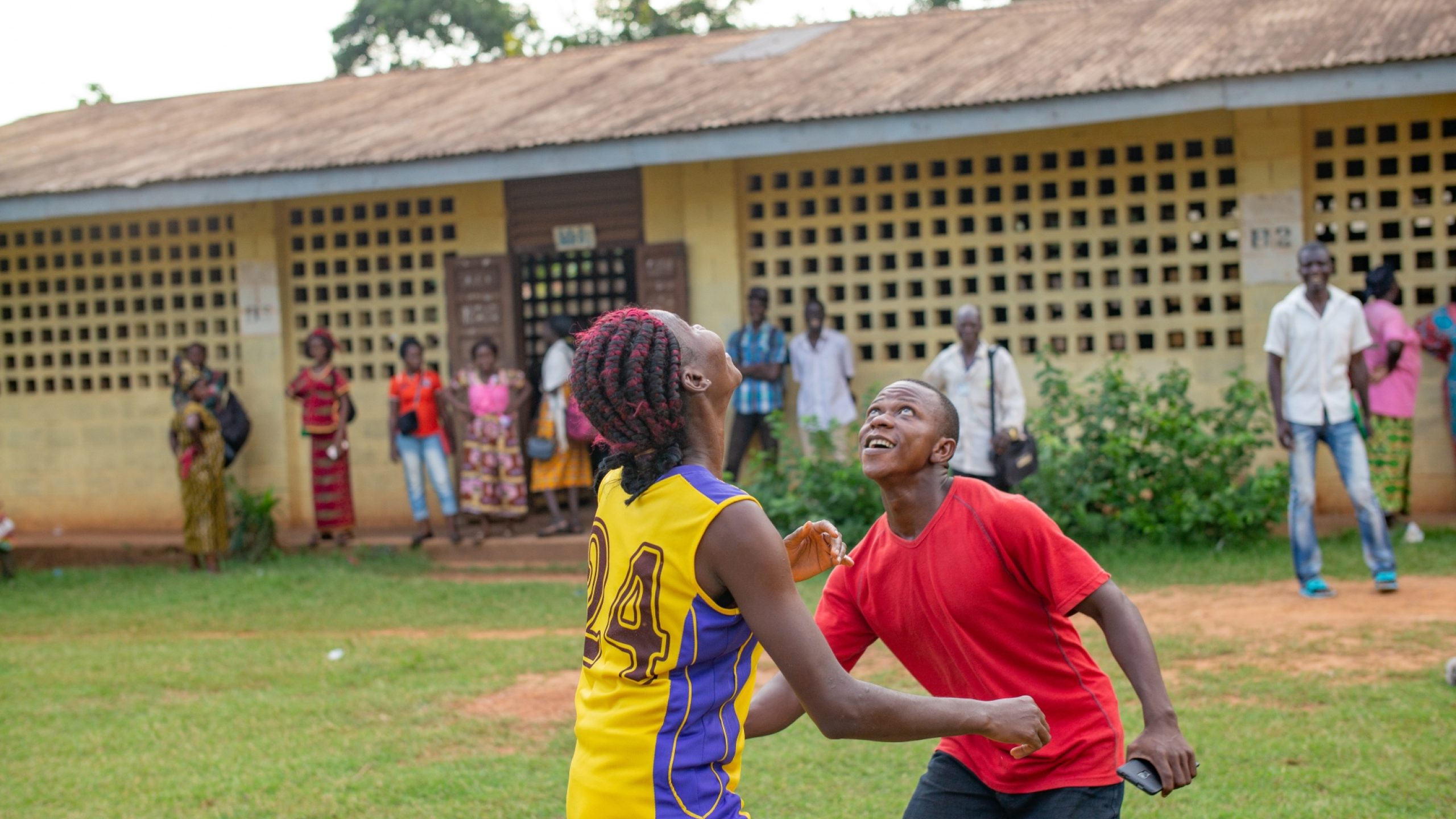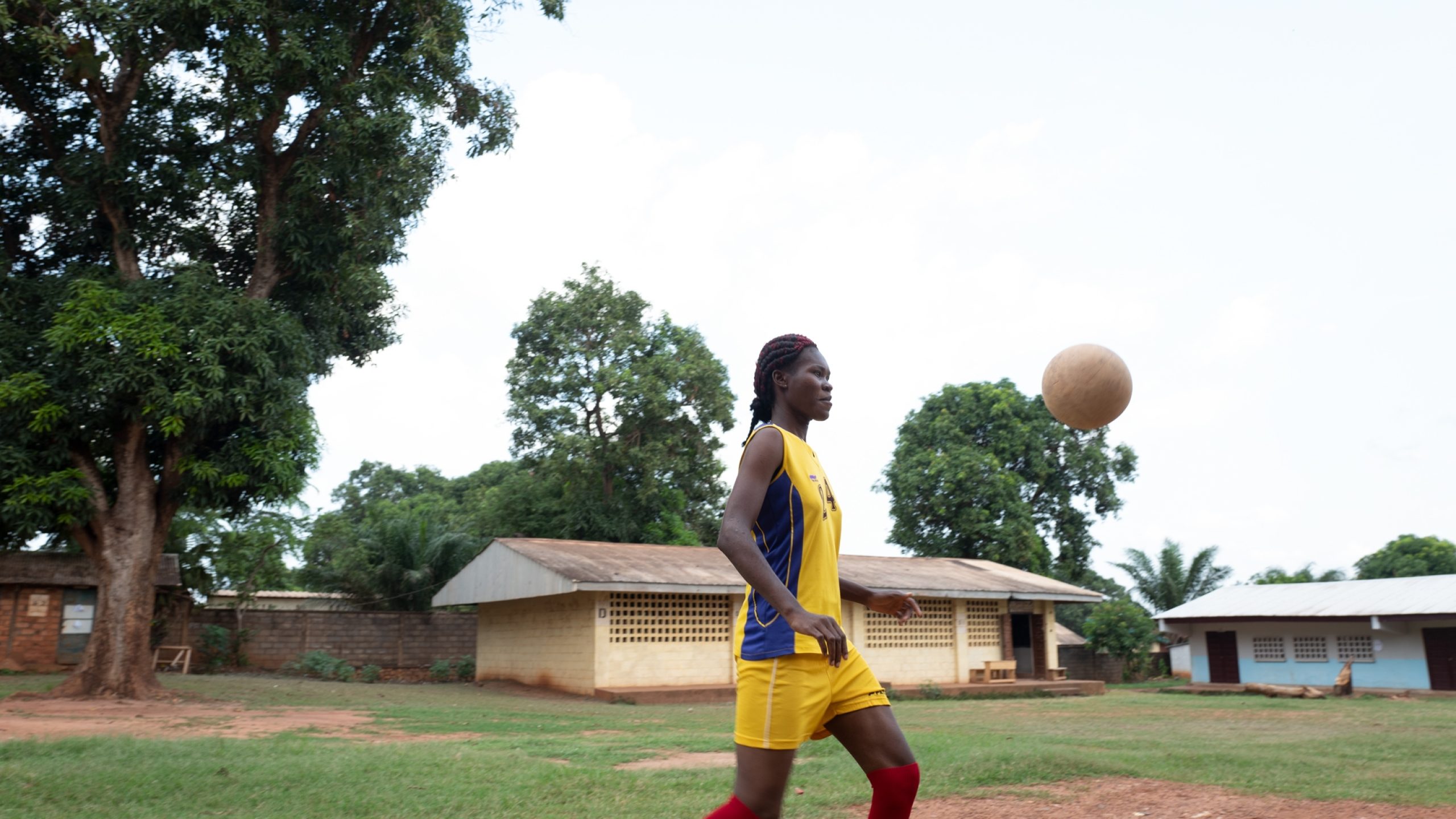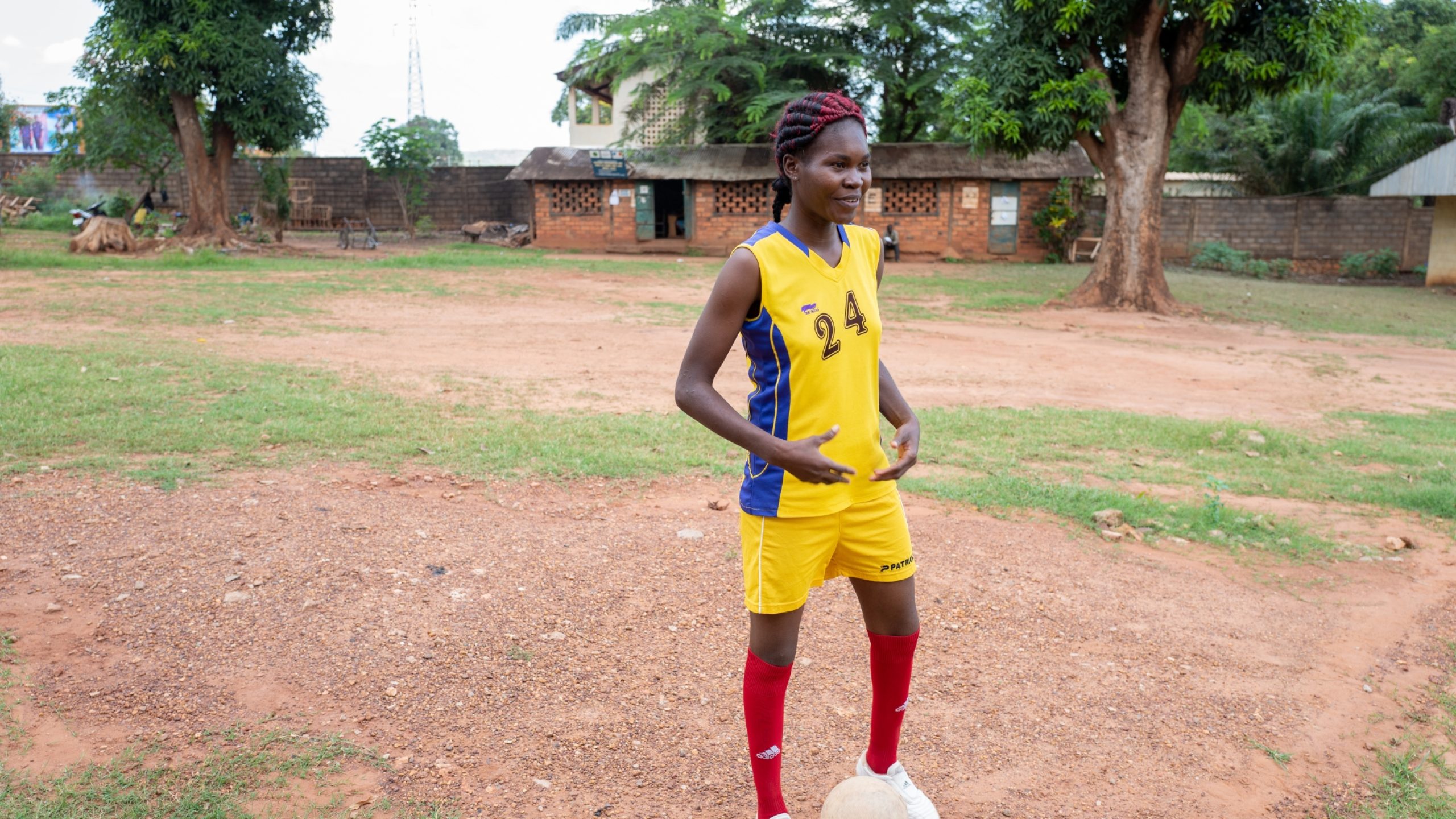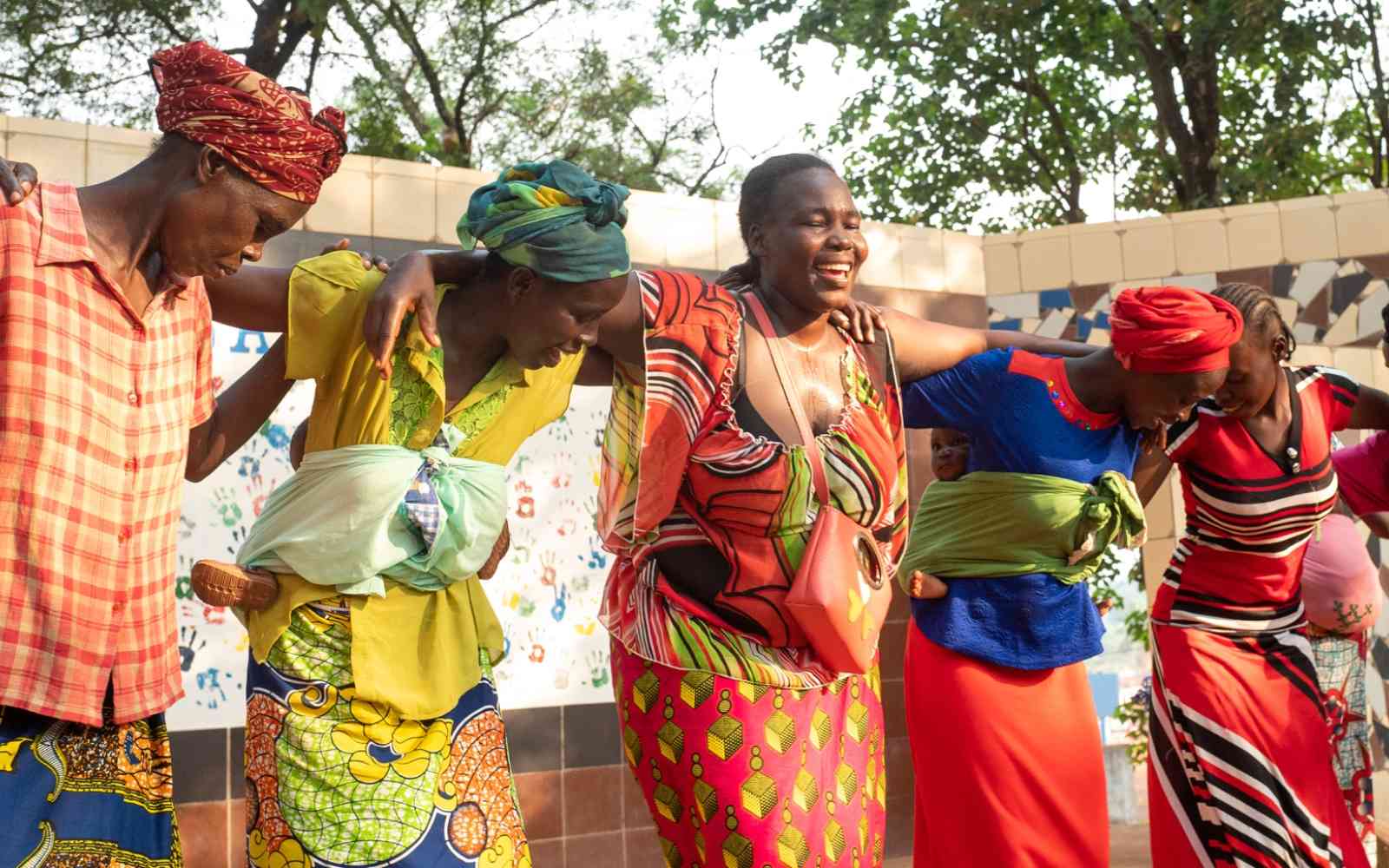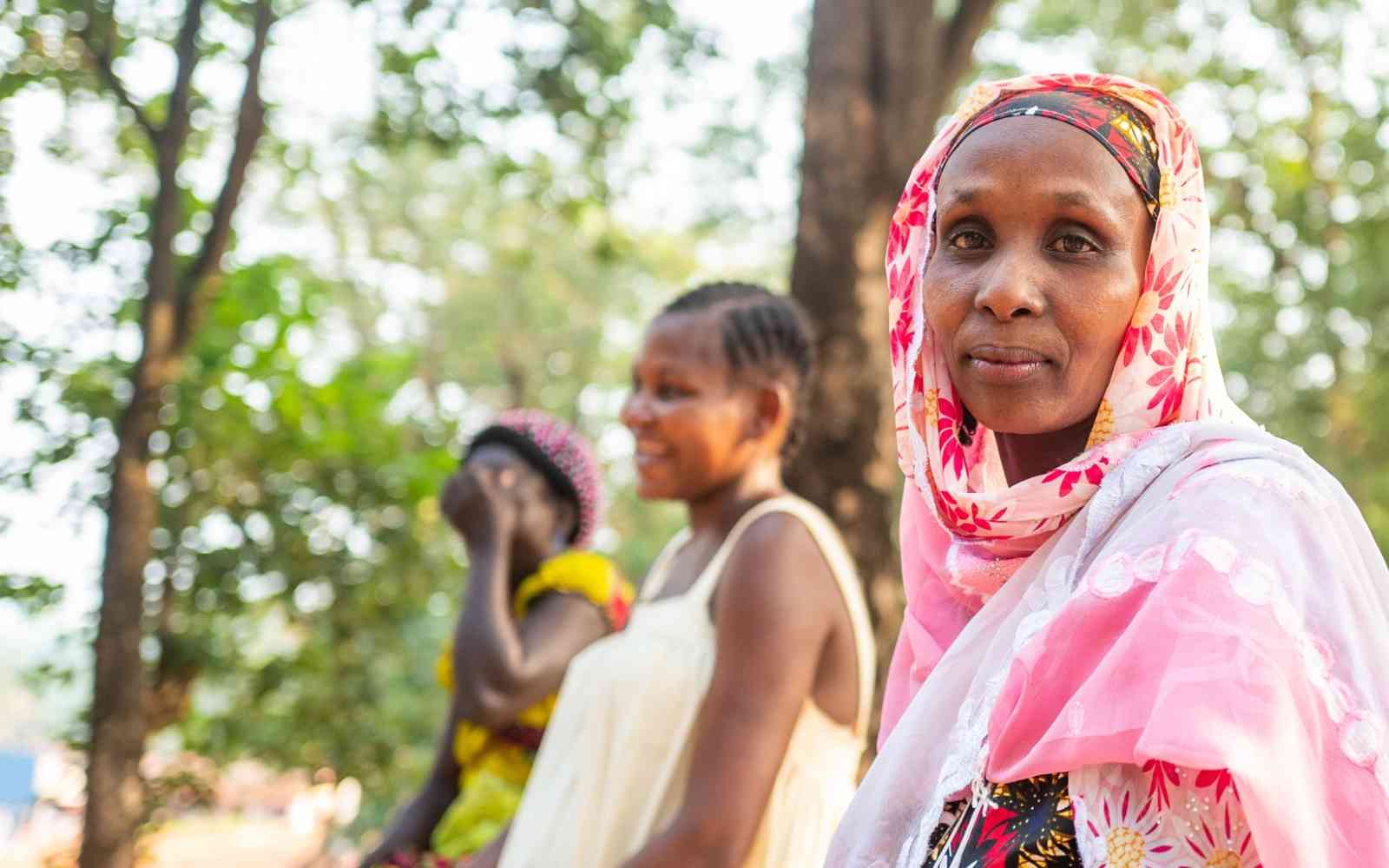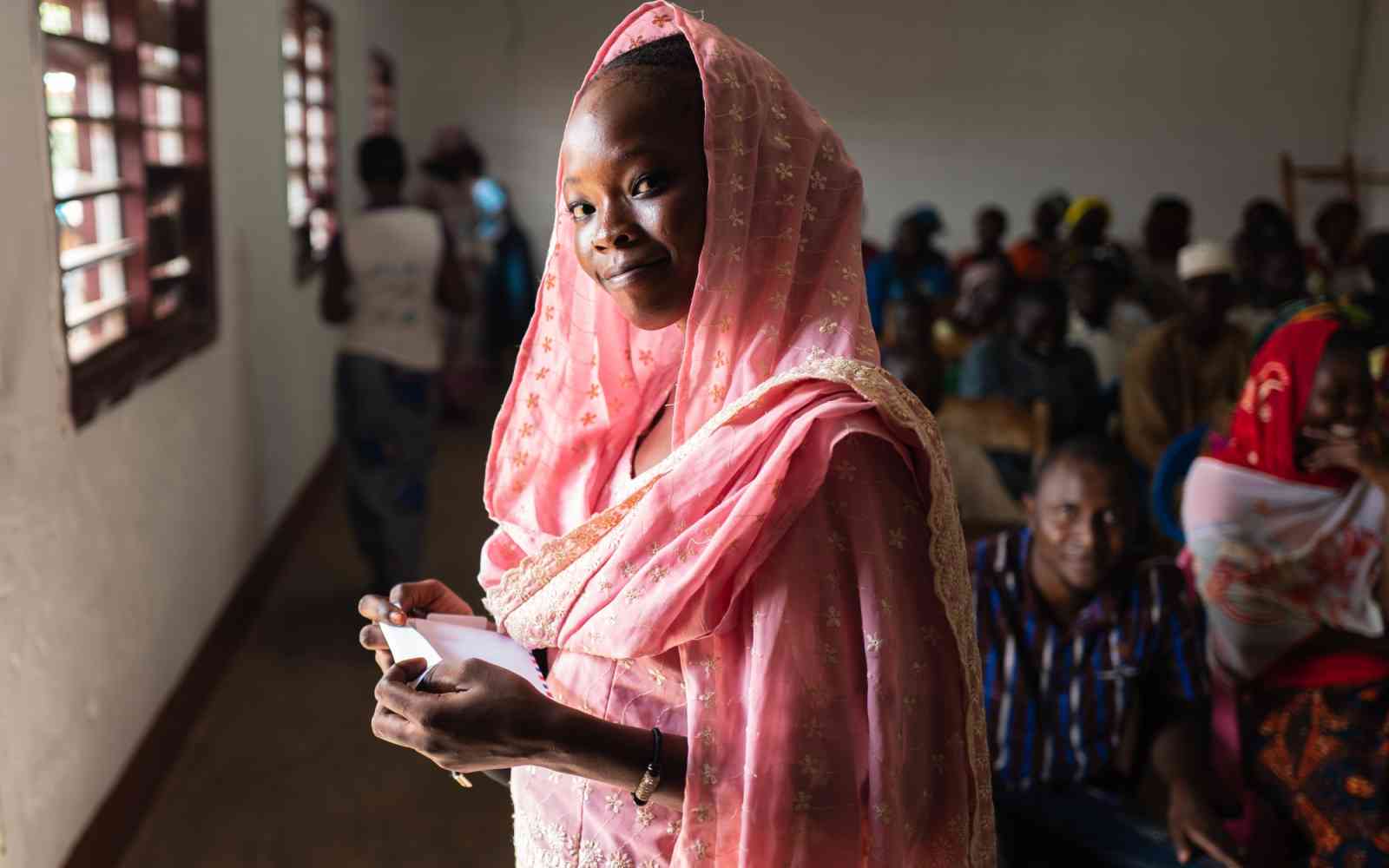The United Nations Office for Project Services (UNOPS)

A fresh start for peace
Meet the Central Africans laying down their weapons and making a stand for peace.
Since 2013, armed conflict has affected all aspects of life for people living in the Central African Republic and has resulted in countless deaths, displacement, and the destruction of businesses and public institutions. Lack of economic prospects and grief has driven many to take up arms.
As part of the United Nations’s peacekeeping operation in the small landlocked country, a community violence reduction programme is helping communities address conflict and reduce the incentive to join armed groups.

Sylvie
“I joined an armed gang after my father and big brothers were killed,” says Sylvie, a former combatant who lives in the country’s capital, Bangui. Pausing a moment to reflect, she adds: “I don’t think there was anything good in that. War destroys a country.”
Sylvie now lives on the outskirts of the city with her son and makes a living selling traditional herbal remedies. She is also taking part in a tailoring course, which is offered through the community violence reduction programme as part of a wider recovery process to prevent conflict in the country.


For Sylvie, learning how to sew has given her a new focus in life. “As soon as I have my sewing machine, I can make clothes, even suits. If I manage to make a suit, that will be great," she says.

Sewing allows me to have a better income instead of turning towards violence.
When Sylvie finishes the training course she will receive a kit that includes a sewing machine and other materials that will help her establish her own tailoring business.
Thinking towards the future, she explains: "I no longer need to take up arms. I want others to also put down their weapons and live in peace."

Herman
A lack of economic opportunity drove Herman to join an armed group. “I had nothing else to do. I finished high school and I couldn’t find a job. I had no backing to go to university. I was forced to join this thing,” he explains.
Even though the path for Herman has not been easy, he has transformed his life and now runs a successful shop in a small neighbourhood of Bangui, where he has become a respected member of his new community.


My dream now is to truly become someone in life and expand my business.

Being part of his community’s development is especially important for Herman. “We need to show solidarity to one another. I want to give people jobs and help the country move forward,” he adds.
Before opening his shop, Herman took part in the programme, attending a course in commerce, where he learned the skills necessary to get his life back on track and start the business.
Vanesa
To help pay for her studies, Vanesa managed a small shop before it was looted during an outbreak of violence in 2015. “I lost a lot of merchandise. I had to stop going to school,” explains Vanesa, who hopes to relaunch her business after she finishes her course in commerce.
Even though Vanesa was never directly part of an armed group, she has an important part to play in the peace process.

There is a lot of insecurity in the country and this is the reason I want to take part in this course – to be able to bring about change.
When Vanesa is not studying or planning new business ventures, she is also an avid footballer who has played for the women’s national football team, including in matches held in Cameroon and the Democratic Republic of the Congo. She dreams of travelling more and, as a representative of her country, showing the world what strong and talented women like her can achieve.
Despite the difficulties she has faced, Vanesa has never given up. “[Even] after the destruction of the country, I play football. It surprises people,” she says. “I want to be an example. I will do everything possible to inform others about what I’ve learned here [through the community violence reduction programme] because I want my country to develop. I want to be an ambassador for peace.”
A chance at peace
The community violence reduction programme directly works with former combatants to help them reintegrate back into society. In addition to studying a vocation, participants have the opportunity to discuss and learn about important topics such as peacebuilding, national reconciliation and citizenship.




The courses are also available to those who have not directly taken part in armed conflict but are also in need of support to help ensure social cohesion and promote reconciliation between all community members.
“Establishing a link between security, peace and development is vital to bring about change,” explains Maurice Kamwanga Bindende, who is the Acting Head of UNOPS in the Central African Republic.
“Generating employment is an important aspect of the programme, which is fully aligned with the needs of the country,” he says.

Programme details
The community violence reduction programme supports some 10,000 people like Herman, Sylvie and Vanesa across the country.
Both former combatants and non-combatants from communities affected by conflict are given the opportunity to take part in vocational training that provides skills and materials to help them reintegrate into society. Participants can choose from a variety of vocations – including driving, mechanics, masonry, cooking, IT, tailoring, commerce, carpentry and electronics. The programme aims to foster socio-economic development and promote social cohesion in communities prone to violence.
Funded by the United Nations Multidimensional Integrated Stabilization Mission in the Central African Republic, the programme is part of a wider UN programme to disarm and stabilize the Central African Republic. As the main implementing partner, UNOPS oversees the programme's activities with support from other implementing partners and local organizations working on peace and reconciliation in the country.







